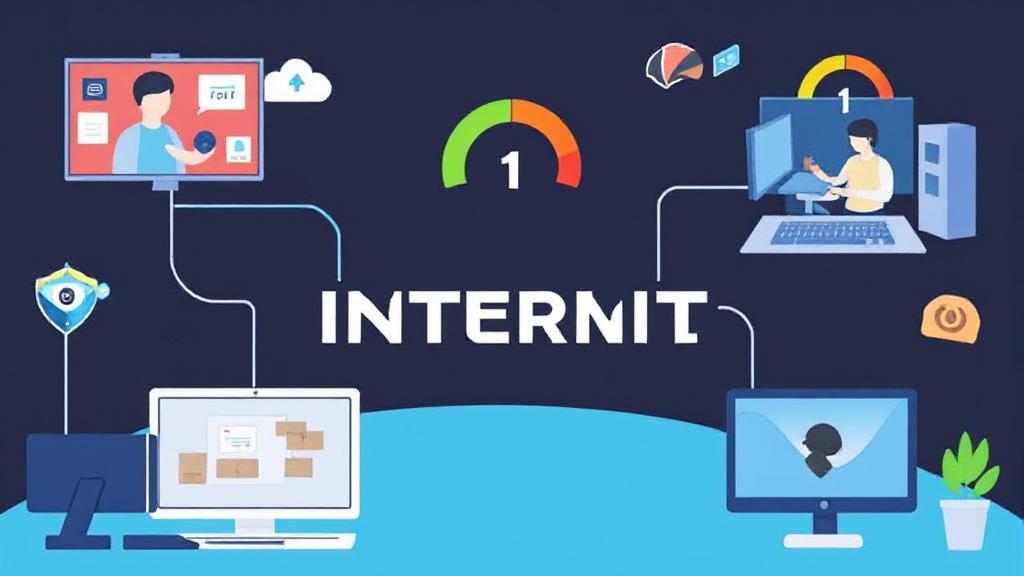Introduction
In today's digital age, having a reliable internet connection is crucial for both personal and professional activities. While download speed often gets the spotlight, upload speed is equally important for many online activities. Understanding and optimizing your upload speed is essential for a seamless online experience.
What is Upload Speed?
Upload speed refers to how quickly data can be sent from your device to the internet. It is measured in megabits per second (Mbps). While download speed is about receiving data, upload speed is about sending data. A higher upload speed means faster data transmission, which is essential for activities that require real-time data exchange.
Recommended Upload Speeds for Common Activities
Video Conferencing
For smooth video calls and virtual meetings, you'll need:
- Standard definition (480p): 1-1.5 Mbps
- HD (720p): 2.5 Mbps
- Full HD (1080p): 4 Mbps
- 4K: 8-10 Mbps
Pro tip: For optimal performance in platforms like Zoom or Microsoft Teams, aim for speeds slightly higher than the minimum requirements.
Gaming
| Game Type | Minimum Upload Speed |
|---|---|
| Casual Games | 1 Mbps |
| Competitive FPS | 2-3 Mbps |
| Cloud Gaming | 5-10 Mbps |
Content Creation and Streaming
For content creators, these upload speeds are recommended:
- Twitch streaming: 3-6 Mbps for 720p/60fps
- YouTube Live: 4.5-9 Mbps for 1080p/60fps
- Facebook Live: 4 Mbps for 1080p
Cloud Applications and Remote Work
Most cloud-based applications require modest upload speeds:
For a smooth remote desktop experience, aim for at least 5 Mbps upload speed, though 10+ Mbps is ideal for high-resolution displays or multiple monitors.
Smart Home Devices
Modern smart home setups need reliable upload speeds:
- Security cameras: 1-2 Mbps per camera
- Video doorbells: 1-2 Mbps
- Smart sensors: 0.5-1 Mbps
Recommended Overall Speeds
Basic Usage
For basic internet usage (email, web browsing, social media):
- Minimum: 2 Mbps
- Recommended: 5 Mbps
Professional Usage
For professional use with video conferencing and file sharing:
- Minimum: 5 Mbps
- Recommended: 10 Mbps
Power Users
For content creators, streamers, or heavy remote workers:
- Minimum: 10 Mbps
- Recommended: 20+ Mbps
How to Test Your Upload Speed
Testing your upload speed is simple and can be done using online tools like:
Improving Your Upload Speed
If your upload speed is not meeting your requirements, consider the following steps:
- Upgrade Your Internet Plan: Contact your ISP to explore higher-speed plans
- Optimize Your Network: Ensure your router is up-to-date and positioned optimally
- Limit Background Usage: Close unnecessary applications that may be using bandwidth
- Use Wired Connections: Ethernet connections can provide more stable speeds than Wi-Fi
For more detailed information on internet speeds, you can visit FCC's Broadband Speed Guide.
Remember that these are general guidelines, and your specific needs may vary. When choosing an internet plan, consider your household's concurrent usage patterns and add a buffer for optimal performance. Many ISPs now offer symmetrical connections, where upload speeds match download speeds, which can be particularly valuable for modern internet usage patterns.
